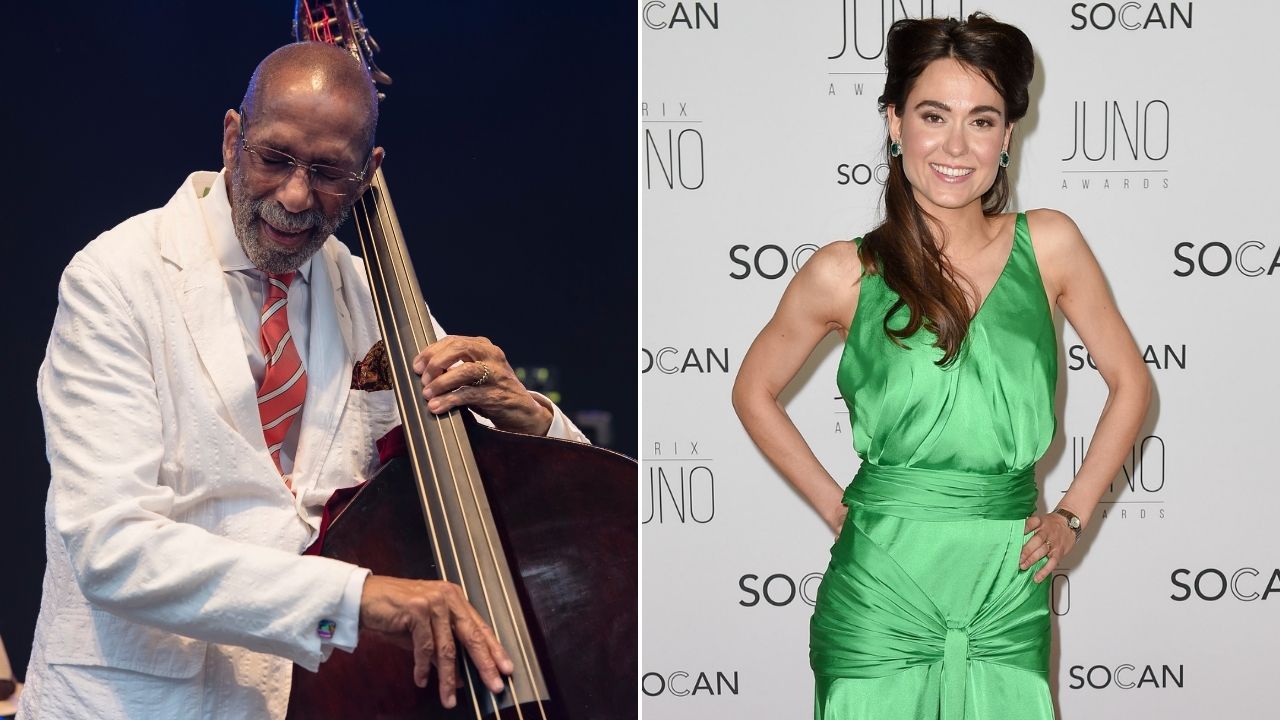“Raises professional bass amplification to the next level”: Boss has unveiled its first-ever Katana bass head – and it might have just changed the game for bass players
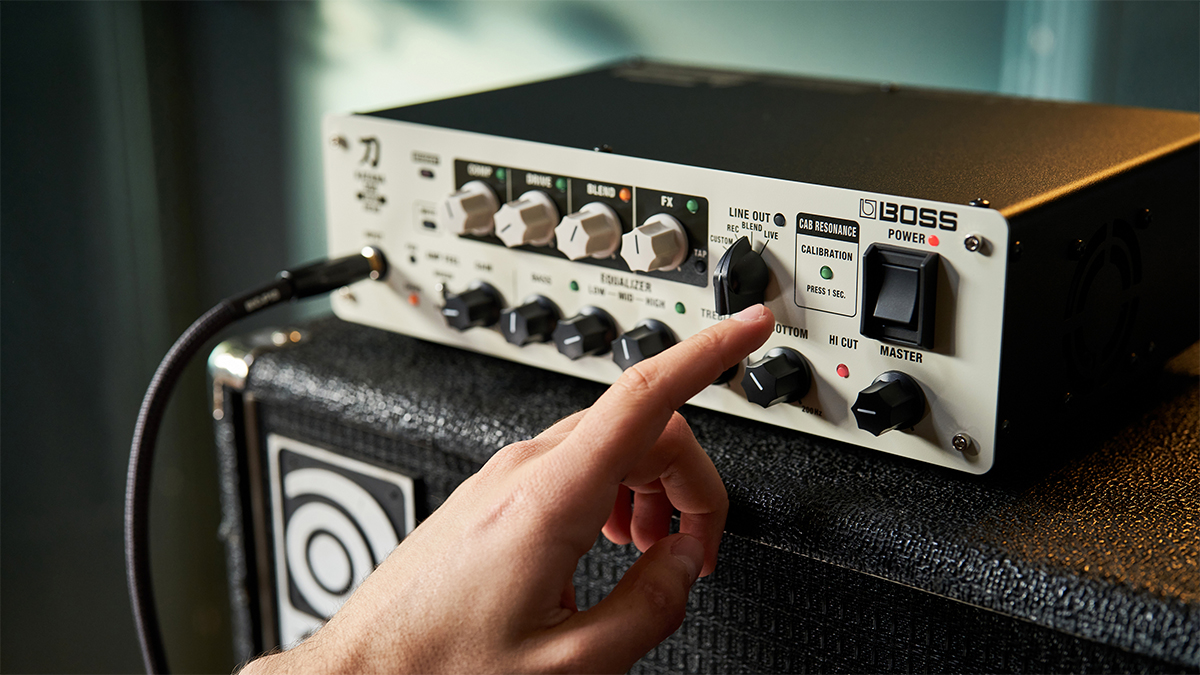
Boss has expanded its amp family with the Katana-500 Bass Head and Katana Cabinet 112 Bass, which look to take bass amps to a new level thanks to some characteristic Boss innovations.
There are a few headlines here, but the main one is: this is Boss’ first-ever Katana bass head. Indeed, the company is still relatively green when it comes to Katana bass products, having only released its flagship bass combos in 2022.
A Boss Katana combo would no doubt have appealed to a large number of bassists, but a portable Katana head that can easily be transported between gigs, and that still supplies Boss Tone Studio powers? This is a very savvy move from Boss indeed.
But here’s the kicker: the Katana-500 Bass Head looks to one-up other bass heads by way of its innovative Cabinet Resonance calibration function.
In practice, the Cab Resonance uses “high-tech calibration to internally fine-tune the power output section for the user’s preferred speaker cabinet”.
In other words, it can be paired with a cab of your choosing, and thanks to some electrical wizardry, will calibrate the amp’s reactive output stage circuitry to match the impedance and frequency response of its connected cab.
The process considers the lowest frequency a cab can produce, its high-end resonances and “many other factors”, before using advanced processing to “provide superior feel and response, powerful lows, and high-definition overall sound”.
All the latest guitar news, interviews, lessons, reviews, deals and more, direct to your inbox!
It sounds very practical indeed. Active bassists, at least on paper, could haul the head to a gig and get a dead-on bass sound regardless of the provided backline.
Now, Cab Resonance can be found on some other Boss Katana guitar amps, but the function here is different. On the Katana-100 MkII, for example, the parameter is used to emulate Vintage, Modern, and Deep tones. Here, it aims to optimize the amp’s performance for any speaker cabinet.
Cab Resonance aside, the Katana-500 Bass Head is a well-spec’d amp. It boasts a four-band active EQ with three adjustable frequency options, three Hi Cut settings, a Bottom parameter for low-end sculpting and a Shape knob that can “instantly revoice the amp with mid-scoop, bright, and wide-range curves”.
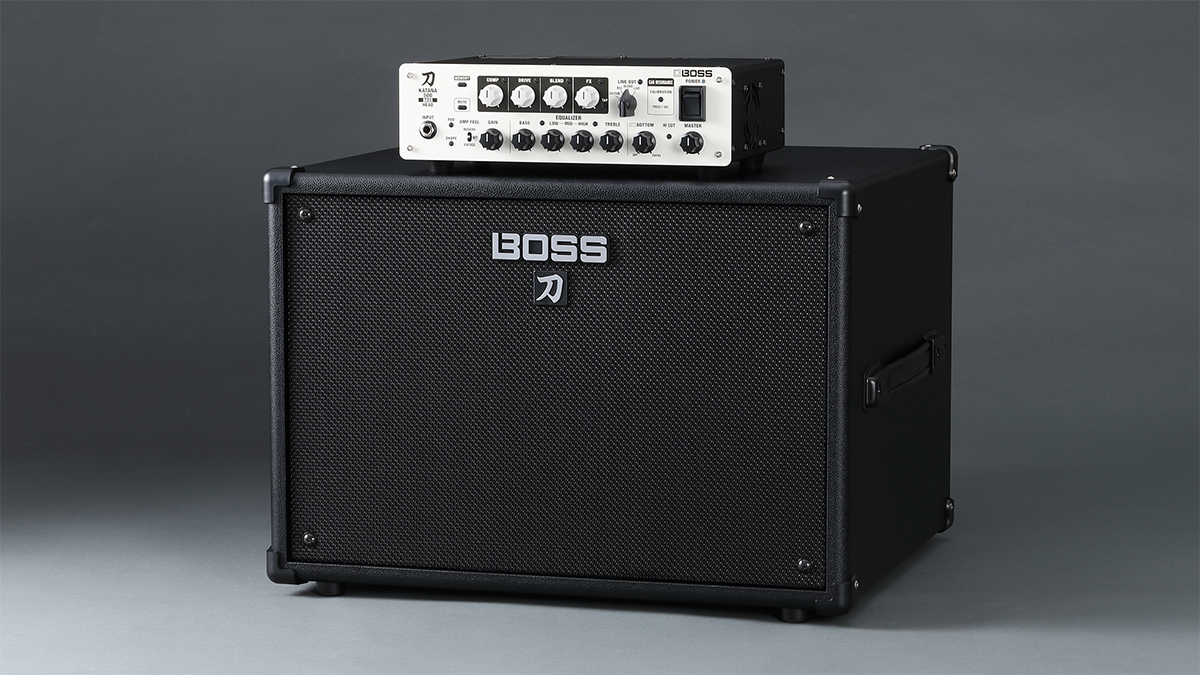
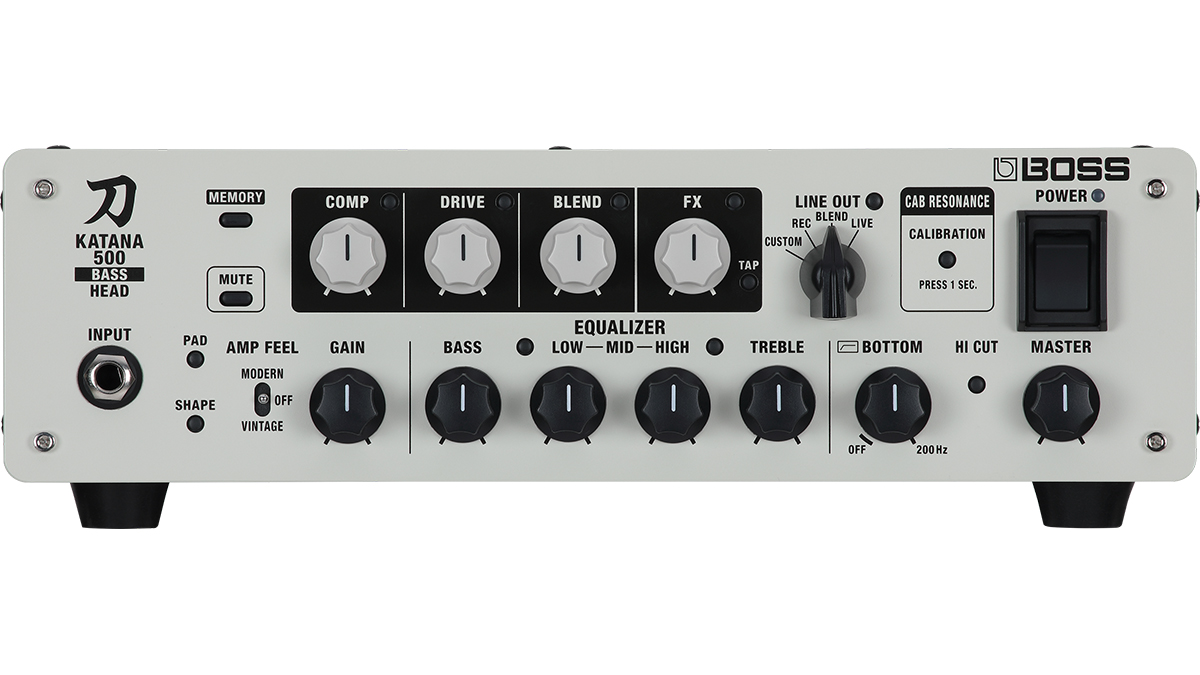
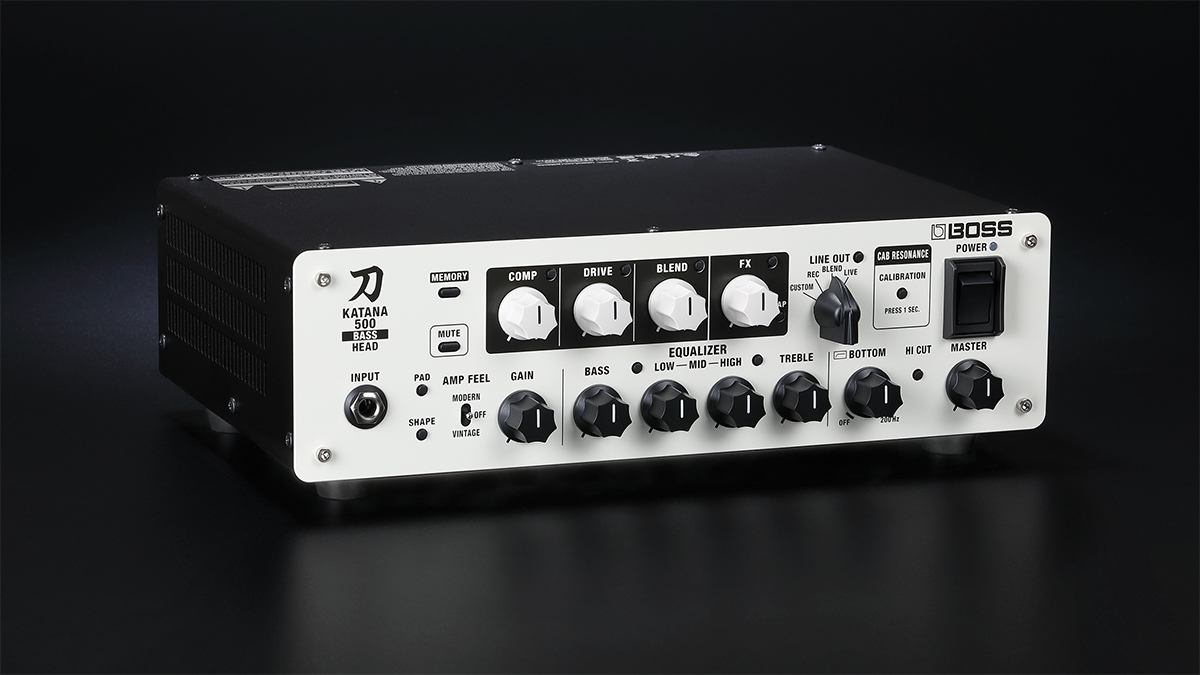
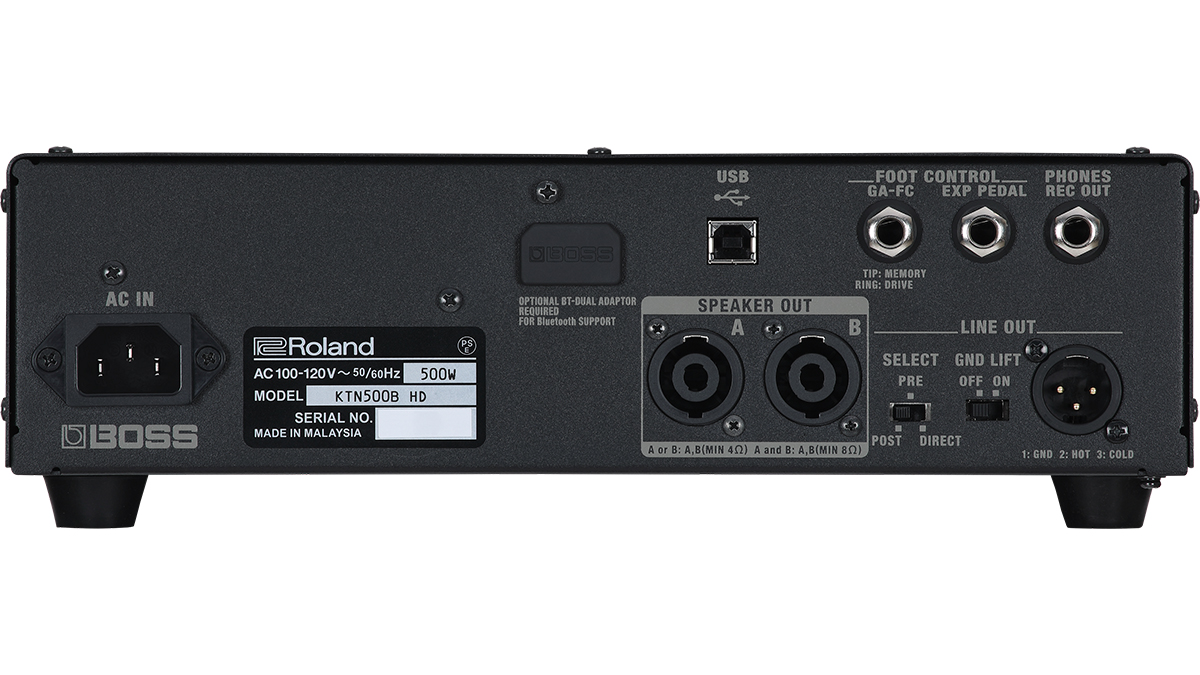
There’s also an Amp Feel switch, which applies Modern or Vintage tones, and an FX section that offers room for three bass effects, including Comp and Drive types, and a Blend knob.
Elsewhere, the amp debuts a newly developed 500-watt Class D power amp and refined preamp circuitry. As for connectivity, there’s an XLR line output, two locking Speaker outs and a headphone jack, as well as a USB port.
Because let’s not forget, this is a Katana amp, which means it has access to the Boss Tone Studio. There, bassists can edit amp parameters, and access over 60 Boss effects that can be used in place of the stock Comp, Drive and FX sections.
It’s without doubt Boss’ most advanced Katana bass amp yet, and Boss seems keen to hammer home that point.
“The Katana-500 Bass Head raises professional bass amplification to the next level with advanced Boss technology,” the firm writes. “The compact Katana-500 Bass Head brings serious bassists a next-generation sound experience backed by decades of Boss R&D.”
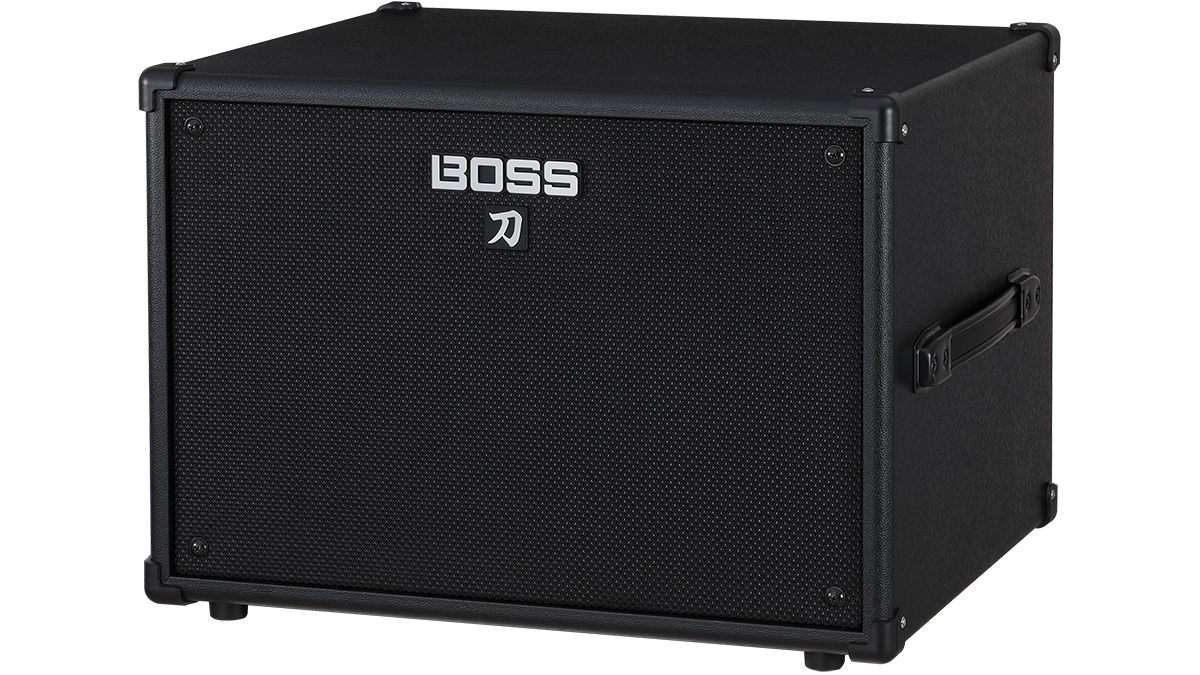
The head is joined by the Katana Cabinet 112 Bass. This is Boss' first bass cab, and comes loaded with a 12” Eminence Neodymium woofer and high-frequency tweeter.
“It’s an ideal match for the Katana-500 Bass Head,” says Boss, “providing full support for the amp’s 500-watt output in a compact, space-saving footprint.”
Price-wise, the Katana-500 Bass Head weighs in at $799, while the Katana Cabinet 112 Bass will list for $699. Both will be available in May.
Head over to Boss for more info.

Matt is the GuitarWorld.com News Editor, and has been writing and editing for the site for five years. He has a Masters in the guitar, a degree in history, and has spent the last 19 years playing everything from blues and jazz to indie and pop. During his GW career, he’s interviewed Peter Frampton, Zakk Wylde, Tosin Abasi, Matteo Mancuso and more, and has profiled the CEOs of Guitar Center and Fender.
When he’s not combining his passion for writing and music during his day job, Matt performs with indie rock duo Esme Emerson, and has previously opened for the likes of Ed Sheeran, Keane, Japanese House and Good Neighbours.

